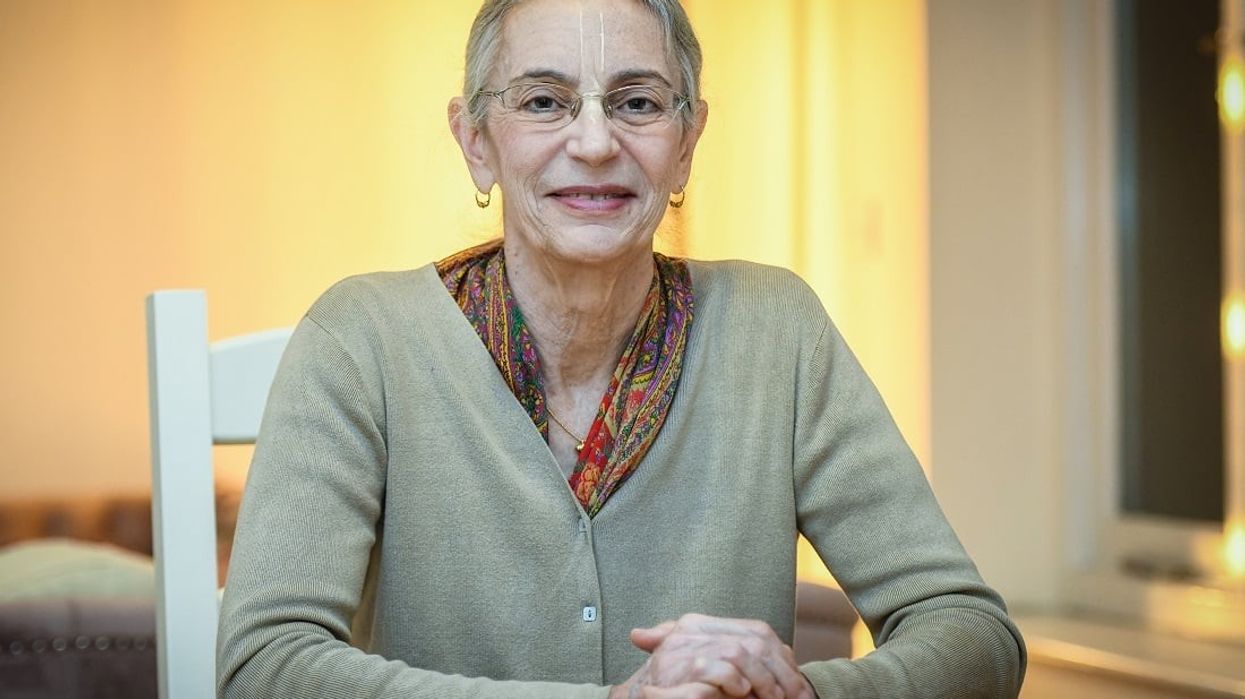WHILE studying the role of religion in sustainability, I came across this powerful phrase: be content with what’s sufficient.
The founder and teacher of the Hare Krishna movement (the International Society for Krishna Consciousness), His Divine Grace AC Bhaktivedanta Swami Prabhupada, encouraged “simple living and high thinking”, and the art of being content with what’s sufficient encapsulates the ‘simple living’ aspect of this goal.
But nowadays we’re bombarded with messages designed to make us discontent with what’s more than sufficient (what to speak of what’s sufficient). We tend to operate on the principle of ‘if some is good, more is better’ – whether wealth, power, prestige, comforts, or pleasures.
By contrast, “simple living, high thinking” points us toward living a life of moderation, while also pursuing intellectual growth and deeper wisdom.
For 10 years, my family and I lived in a remote, off-the-grid community1 centred on the teachings of the Bhagvad Gita.
We found a lifestyle free from excessive material possessions and consumerism. This allowed us to avoid unnecessary complexities and focus on what’s actually important in life.
Simplicity let us meet our physical needs modestly: we didn’t need extra clothes, a fancy car, the latest gadgets. We reduced our expenses, lived within our means, and found our stress levels vastly reduced.
Just trying to be content with what’s sufficient somehow opened space in our minds and hearts.
We gave more time and attention to our friends and to each other, as well as to scriptural study, contemplation, and inquiry; fewer distractions left us with more clarity for higher thinking and spiritual growth.
Without undue effort and without losing our sense of fun and playfulness, we developed a longing to understand life’s questions. In that forested, wild land, we explored the spiritual frontier.
There’s a symbiotic relationship between simple living on one hand and high thinking on the other. As we live a life of minimalism and mindfulness, we dedicate some energy towards selfreflection, the pursuit of knowledge, and the exploration of higher realms of consciousness. We gravitate toward the cultivation of wisdom and inner peace, happiness and fulfilment.
Through the lens of the Bhagvad Gita, we view nature as a sacred gift from the divine. So, we naturally care for the environment through sustainable practices, conservation efforts and a sense of responsibility toward the earth.
Krishna’s teachings inspire us to avoid excessive consumption and waste.
By Krishna’s divine arrangement, all life forms are interconnected and interdependent, and an awareness of this fact fosters appreciation of the ecological balance he’s created and the need to maintain healthy ecosystems. We feel inspired to become stewards of the environment and we’re committed to preserving our natural resources.
Yet, despite the personal and societal advantages of simple living, high thinking and being content with what’s sufficient, many of us don’t see the validity of this lifestyle.
Why is that? It could be from growing up in a culture that emphasises consumerism and measures success by the accumulation of wealth and possessions. It could be because we’re under heavy peer pressure and social conditioning to conform to materialistic values. It could be because we associate simple living with a sense of scarcity or a lack of comfort and convenience; how can we give up certain pleasures?
And, if all that’s not enough, the “high thinking” aspect requires patience, discipline and delayed gratification, which can be difficult in a culture that prioritises instant gratification and quick fixes. The attraction of immediate pleasures can overshadow the long-term benefits of spiritual growth.
Many of us have not been exposed to teachings and examples that promote simple living and high thinking, so these concepts may seem foreign or counterintuitive. We are also overwhelmed with obligations and have little time for self-reflection and study. In a society that glorifies constant productivity and busyness, the idea of simplicity and contemplation appears unproductive and undesirable.
So, dear reader, to question the status quo and societal norms, to break free from ingrained habits and comforts, to seek alternative perspectives is a humongous challenge.
Yet, exactly that challenge may be what’s needed to preserve our sanity – and our planet.
To whatever great or small extent we’re ready for it, the beauty and validity of simple living, high thinking is an option available to each one of us wherever we are and whatever we’re doing. Let’s all try to be content with what’s sufficient.
* 1 This unique community is called Saranagati and is located in British Columbia, Canada https://www.saranagatitemple.com/ the-saranagati-village




